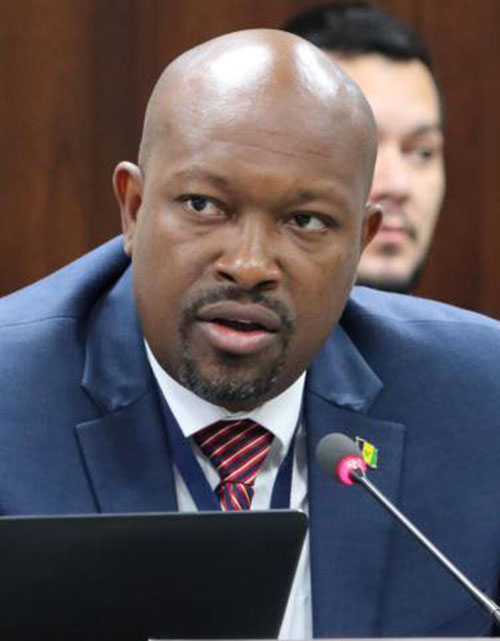As the coronavirus (COVID-10) pandemic continues to pose a threat to food security in the region, several Caribbean nations have met to discuss methods to protect its supply.
Even as the likelihood of a threat to Caribbean food security begins to ‘make the rounds’ in the region there has still been no significant public pronouncement, collectively, from the region as a whole with regard to a likely region-wide response to such threats to food security issues as might arise out of the global pandemic.
Back in early April, regional Agriculture Ministers engaged in a special (videoconference) session of the Council for Trade and Economic Development (COTED) to consider the likely impact that the coronavirus might have on food and nutrition security in the Region.
If the assessment arising out of the forum has been that there exists no imminent threat to the region’s food supplies, an annual US$4 billion food import bill still continues to hang like the Sword of Damocles over the region’s head, a circumstance that could compromise CARICOM’s ability to continue to access external food supplies in the short to medium term.
Arising out of the April meeting, this newspaper understands, is a “framework document” which Ministers of Agriculture have accepted in principle, as a road map for addressing the availability and accessibility of food in the region as the COVID-19 pandemic persists.
With ‘framework documents’ and position papers having become the bane of CARICOM’s bureaucratic existence, the question has already arisen as to when the application of the recommendations/decisions contained in the document will be actualized.
This newspaper has spoken to local private sector sources, including some farmers who point out that they would welcome an understanding of how Guyana and the rest of the region plan to configure agriculture production and marketing in the period ahead in order to stave off a food security crisis in the region as the COVID-19 pandemic continues to rage.
While it might be expected that Guyana will play a lead role in any initiative designed to seek to ensure food security at this time, St. Vincent & the Grenadines Minister of Agriculture Saboto Caesar has been named as the lead regional functionary of what a regional news source described as “the efforts of the Caribbean Community’s (CARICOM) agri-food sector amid the ongoing crisis.”
Information released by CARICOM states that the measures to be embarked upon in the wake of the ministerial consultations are the facilitation of direct dialogue among the ministers of all territories in the Americas with an aim to share useful information to guide decisions related to securing food and providing training in agricultural and health practices for rural workers. What that means is unclear though one of Guyana’s major coastal fruit and vegetable farmers told this newspaper that he believes that the outcomes of the ministerial deliberations should be shared with the farmers “through their respective Ministries of Agriculture, since “they are the people who, at end of the day, are going to have to produce the food, anyway.”
By far the most prolific food producer within CARICOM, Guyana is likely to be turned to by the rest of the region in the event that food security eventually becomes an issue in the wake of the persistence of the COVID-19 pandemic. It is, however, unclear as to whether entities like the Guyana Marketing Corporation (GMC) which plays a major role in some of the key logistical aspects of exporting food cultivated here to the rest of the region has been brought ‘into the loop’ as far as the outcomes of the recent CARICOM Agriculture Ministers is concerned.
CARICOM countries, the Director of the Inter American Institute for Cooperation on Agriculture (IICA) Manuel Otero said during the virtual forum, can rely on the body to devise “ambitious proposals to generate a new extension strategy based on the use of online and mobile telephone systems, as well as to drive horizontal cooperation, enabling the ministers to establish contact with key countries to build bridges and to take advantage of the existing complementarities.”
The countries that were represented at the virtual meeting were; Antigua and Barbuda, The Bahamas, Barbados, Dominica, Grenada, Guyana, Haiti, Jamaica, St Kitts-Nevis, St Lucia, St Vincent and the Grenadines, Suriname and Trinidad and Tobago.






